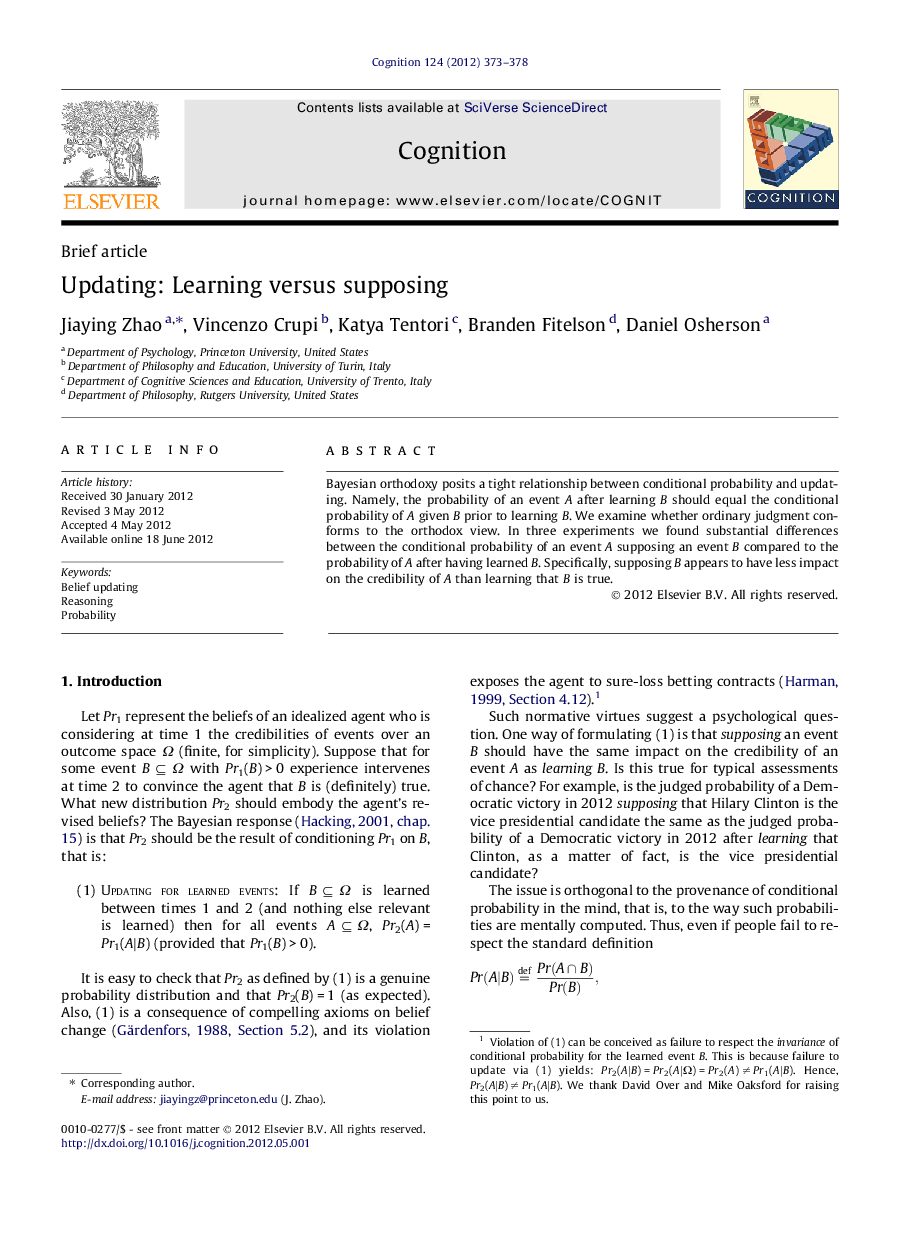| Article ID | Journal | Published Year | Pages | File Type |
|---|---|---|---|---|
| 926509 | Cognition | 2012 | 6 Pages |
Abstract
Bayesian orthodoxy posits a tight relationship between conditional probability and updating. Namely, the probability of an event A after learning B should equal the conditional probability of A given B prior to learning B. We examine whether ordinary judgment conforms to the orthodox view. In three experiments we found substantial differences between the conditional probability of an event A supposing an event B compared to the probability of A after having learned B. Specifically, supposing B appears to have less impact on the credibility of A than learning that B is true.
Keywords
Related Topics
Life Sciences
Neuroscience
Cognitive Neuroscience
Authors
Jiaying Zhao, Vincenzo Crupi, Katya Tentori, Branden Fitelson, Daniel Osherson,
